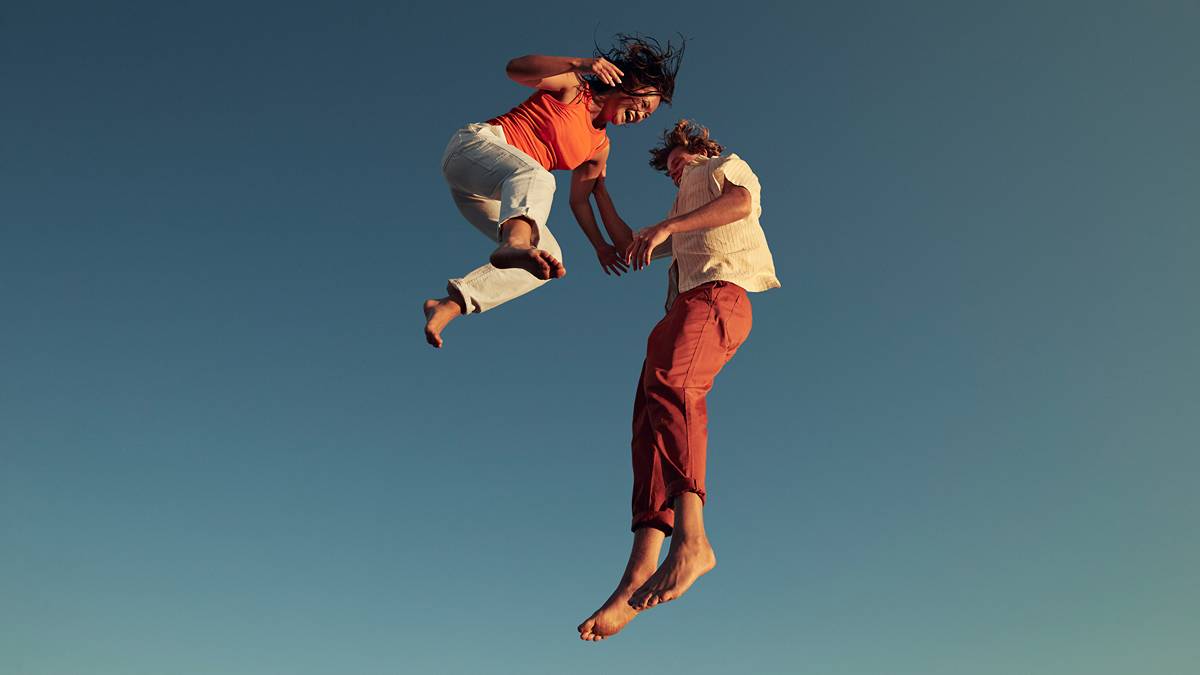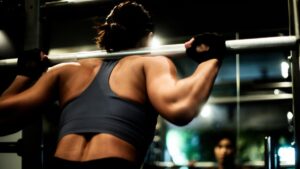Health Check: It’s quarterly report ‘Liberation Day’ for Aroa after a bumper first half result

Aroa Biosurgery is celebrating after being freed from the burden of quarterly report 'homework'. Pic: Getty Images
- With 12 months of consistent positive cash flow, Aroa Biosurgery no longer needs to lodge quarterly reports
- Monash IVF’s bidder will have to pay more
- Pacific Edge positions itself for reimbursement resumption
Aroa Biosurgery’s (ASX:ARX) star product Myriad continues to deliver the goods and is now the company’s biggest revenue generator.
The Kiwi-based soft-tissue-regeneration house today reported product revenue of NZ$44.6 million ($39 million) for the September (first) half, 14% higher than the previous corresponding period.
Myriad sales gained 33% to NZ$19.7 million, having also climbed 35% in the year to March 2025.
The product is used for complex wounds, including trauma and lower-limb salvage.
Myriad sales pipped those of Ovitex, a hernia and breast reconstruction tool sold through Nasdaq-listed partner TELA Bio.
Ovitex sales edged up 4% to NZ$19.2 million.
Normalised earnings before interest, tax and depreciation (ebitda) came in at $1.8 million, compared with a NZ$1.5 million loss previously.
Aroa’s net operating cash inflow was NZ$4 million.
“We are very pleased with our first half performance … underpinned by strong Myriad growth and our fourth consecutive quarter of positive operating cash flow,” Aroa CEO Brian Ward said.
Given that, the ASX has relieved Aroa of its obligation to lodge quarterly reports.
Liberation Day!
Aroa has maintained its full year guidance of revenue NZ$92–100 million – 13% higher at the midpoint – and normalised ebitda of NZ$5–8 million.
Proudly Kiwi
Proudly bearing the Made in New Zealand label, Aroa’s products are made from biological materials sourced from sheep forestomach.
Aroa has product approvals across 50 countries, but almost all its revenue derives from the US.
The company’s strategy is to expand the use of Myriad to complex acute and chronic wounds.
Aroa is also eyeing the lower limb market for diabetic foot and venous leg ulcers.
These expasnions would swell Aroa’s addressable market from around US$730 million currently, to US$1.8 billion.
What doesn’t kill us makes us stronger, says Pacific Edge
Still on Kiwi-based companies, Pacific Edge (ASX:PEB) reckons it has weathered the worst of the impact of US authorities withdrawing Medicare coverage for its Cxbladder bladder cancer assay.
The company reported September half revenue of $NZ7.1 million, down 43% year on year. The net loss grew to $NZ19.1 million from $NZ15.4 previously.
Pacific Edge reported lab throughput of 13,191 tests, down 10%, with commercial tests declining 16% to 10,371 assays.
Management says the company is in “strongest position yet” for the expected resumption of reimbursement.
The next “catalyzing event” is a February 19 meeting of experts convened by Novitas, the company’s Medicare administrator.
“Such expert committees are generally convened ahead of developing new or substantially revised medical policy,” the company says.
Chairman Chris Gallaher says the company has focused on strengthening the clinical evidence for its Cxbladder Triage and Triage Plus tests.
Since the non-coverage kicked in in April this year, the company has been migrating users from its flagship Detect test to these assays.
“The board recognises that maintaining our US market presence through the delay in Medicare coverage places pressure on capital,” Gallaher says.
“But this is a deliberate decision to preserve the value created and position Pacific Edge to capitalise swiftly when coverage is achieved.”
Following a NZ$20.7 million raising in August, Pacific Edge has a decent balance sheet with NZ$22.1 million of cash.
What is Monash IVF really worth?
The market has spoken – and the message is the putative bidder for Monash IVF Group (ASX:MVF) will have to do better than its 80 cents per share indicative entreaty.
The shares traded around 86 cents this morning, but what price would seal the deal?
In rejecting the offer, the Monash IVF board said the bid valued the company at 7.7 times underling earnings to enterprise value – below other recent transactions in the local sector.
But RBC Capital Markets notes there haven’t been many deals with reported multiples.
In 2022, private equity group BGH Capital acquired the then listed Virtus Health on a multiple of nine times.
Since then, conditions have eroded for Monash IVF.
The firm reckons 90 cents to $1 would be “fair and reasonable”. This would value the company on a multiple of 8.3 to nine times.
Osteopore gets its teeth into Malaysian market
More on regenerative medicine …
Osteopore (ASX:OSX) has entered a five-year distribution with a Malaysian entity to sell its bone-regeneration products in the rainforest-fringed nation.
The deal is with DKSH Malaysia Sdn Bhd, subsidiary of the Swiss-listed DKSH Holding Ltd.
Osteopore targets compound annual growth of 20-30% over the period.
The company’s Osteomesh and Osteoplug products are off the shelf, 3D-printed bioresorbable implants.
“The key target customers are Malaysian oral maxillofacial surgeons, prosthodontists, and periodontists in private practice,” the company says.
Guided bone regeneration uses a combination of membrane, bone grafts, and/or bone substitutes to spur new bone growth.
The company values the Malaysian guided bone and tissue regeneration market at US$60 million by 2028.
Osteopore and DKSH Malaysia aim to triple the number of products currently supplied in the first year of partnership.
In collaboration with Universiti Malaya, the company has launched a post-market clinical study. This effort compares Osteopore’s offerings with collagen membranes.
In June last year Osteopore entered a distribution deal with the Singaporean arm of the Indiana-based Zimmer Biomet. This was to distribute its craniofacial products in Europe, the Middle East and the Asia Pacific (including Australia).
In its September quarter report, Osteopore said sales via Zimmer Biomet had tripled in the 12 months to June 2025.
Osteopore reported September quarter revenue of $812,000, 7% higher year on year and cash outflows of $664,000.
Mesoblast forecasts strong sales uptick
Mesoblast Mesoblast (ASX:MSB) says it expects to reap $US30 million from US sales of its graft versus host (GvHD) therapy in the current quarter, a 37% uptick on the September stanza.
The revenue pertains to Ryoncil, the company’s stem cell therapy for paediatric and adolescent GvHD.
The US Food & Drug Administration approved the therapy in December last year and the company began selling in April.
As we reported yesterday, Mesoblast plans a clinical trial to expand Ryoncil to the much larger adult GvHD market.
Founder and CEO Silviu Itescu told today’s AGM the company also was “actively recruiting” the 300 patients required for a confirmatory phase III lower-back-pain trial. This is being done across 40 US sites.
The company also expects to file for accelerated FDA approval of its chronic heart failure candidate in the March quarter.
Related Topics

UNLOCK INSIGHTS
Discover the untold stories of emerging ASX stocks.
Daily news and expert analysis, it's free to subscribe.
By proceeding, you confirm you understand that we handle personal information in accordance with our Privacy Policy.








